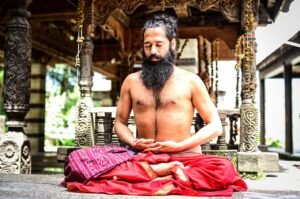4-5 Asanas That Boost Mental Health
One of the biggest ways that you can protect your mental health is by becoming more aware or mindful. So, what exactly is being mindful? Mindfulness is a way of engaging with the current moment with awareness. We are often so distracted that we are never fully present in the moment in order to enjoy it. But when you begin practicing mindfulness, it removes the fluctuations of the mind that we are so habituated to. Mindfulness is a tool that can be learnt from practices like yoga, meditation, Tai chi and many other spiritual practices Mindfulness can be defined as the ability to watch, and interact with our surroundings without reacting to it. Instead of impulsively acting upon our emotions, mindfulness teaches us to observe our own breath. Breath is one of the major factors of emotional regulation. And when we learn to adopt a non-judgmental acceptance to situations, we are conscious of it but yet not affected by it.
According to the holy book of the Bhagavad Gita, the mind can be either your best friend or your worst enemy. This is entirely up to you. If you make it your companion, then you can achieve anything that you want to. But if your mind is against you, then your intelligence gets channelized towards unproductive activities or thoughts. Yoga cultivates mindfulness by creating a more permanent and holistic solution for mental and physical well-being.
Paschimottanasana – Seated forward bend
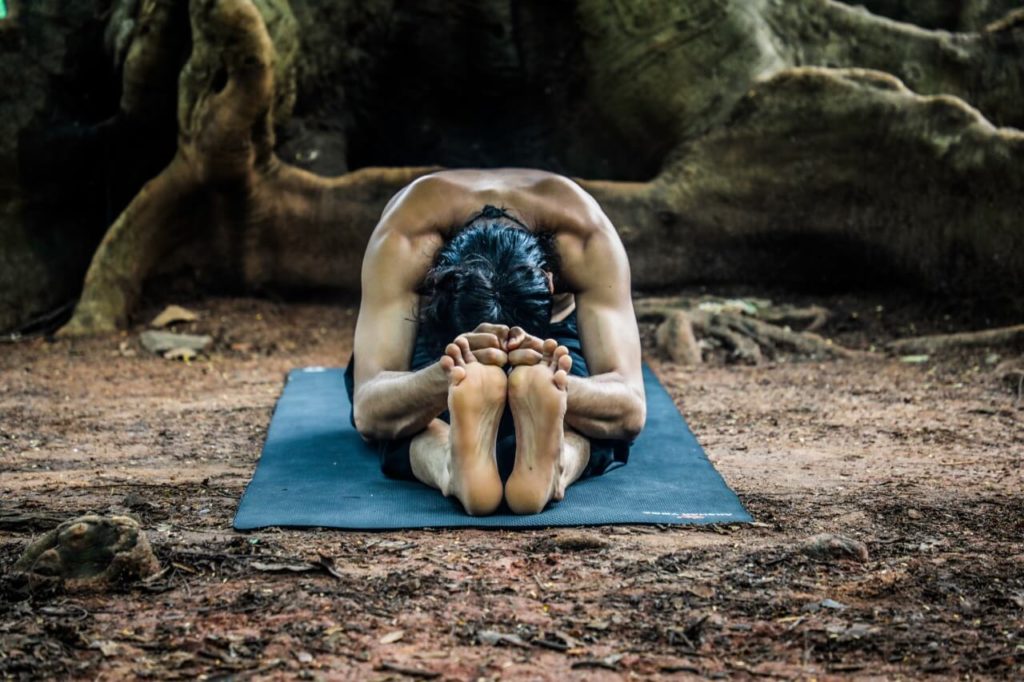
Formation of the Posture
Sit down and stretch your legs out forward. Ensure that your knees are slightly bent while your legs are stretched out forward. Extend your arms upward and keep your spine erect. Exhale and empty your stomach of air. With the exhale, bend forward at the hip and place your upper body on your lower body. Lower your arms and grip your big toes with your fingers. Try to touch your knees with your nose. Hold eight to ten breaths
Adho Mukha Svanasana
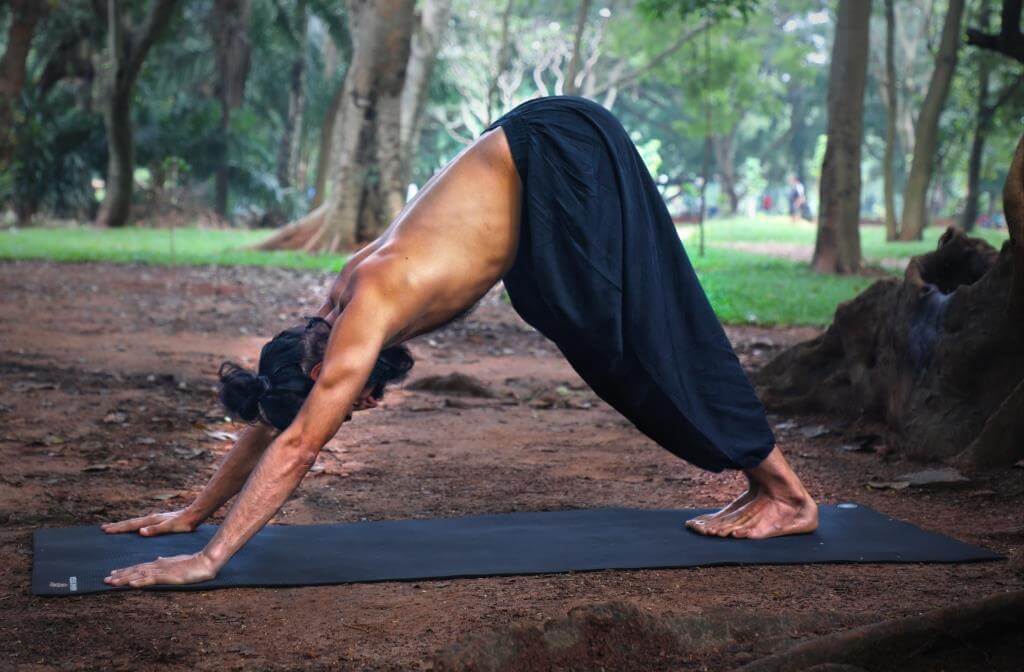
Formation of the posture
Start on your fours, ensuring palms are under the shoulders and knees below hips. Lift the hips up, straighten the knees and elbows, and form an inverted ‘V’ shape. Now keep the hands shoulders width apart. Fingers point ahead. Put pressure on your palms and open your shoulder blades. Try to push your heels to the floor. Keep your eye focused on your big toes. Hold for eight to ten breaths
Sarvangasana
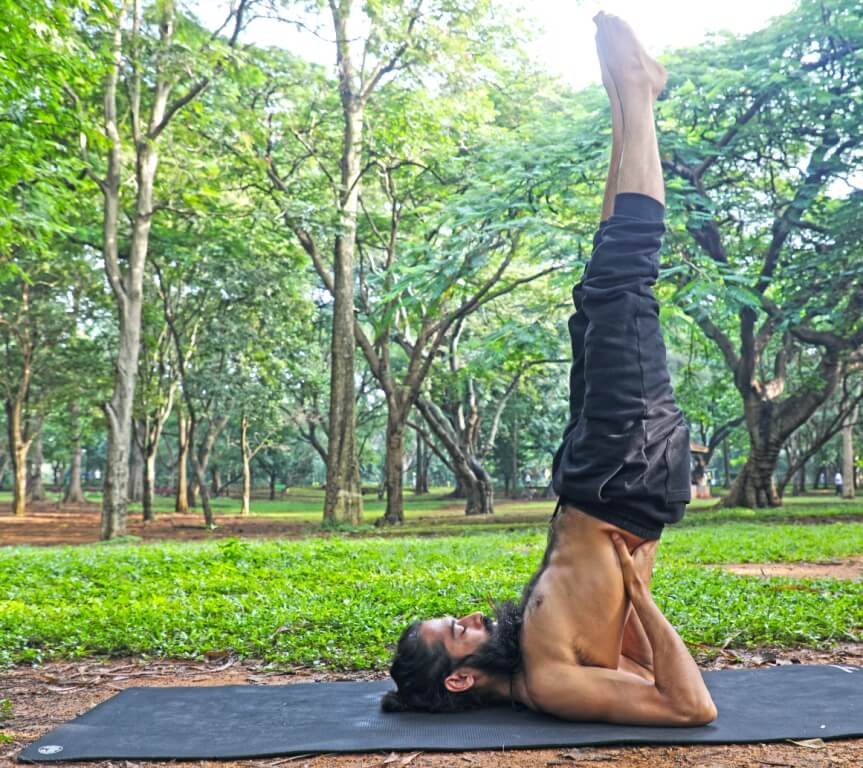
Formation of the posture
Begin by lying down on your back and place your arms beside your body. Gently lift your legs off the floor and position them perpendicular to the floor with feet facing the sky. Slowly lift your pelvis and back off the floor. Bring your forearms off the floor and place your palms on your back for support. Try to achieve a straight line between your shoulder, torso, pelvis, legs and feet. Keep your chin close to your chest and focus your gaze towards your feet.
Baddha Konasana
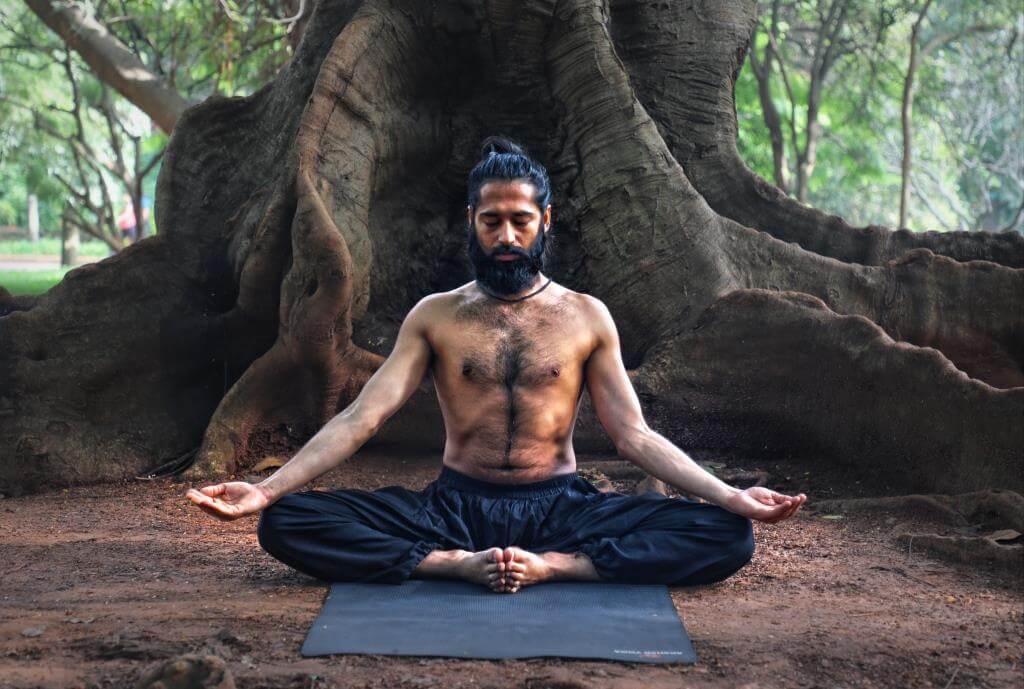
Formation of the posture
Sit down and fold your legs and bring the soles of your feet together. Pull your heels closer to your pelvis, and gently push your knees down. Empty air from your stomach, lean your upper body forward and place your forehead on the floor. Hold for 30 seconds and repeat up to 3 times
Savithri asana
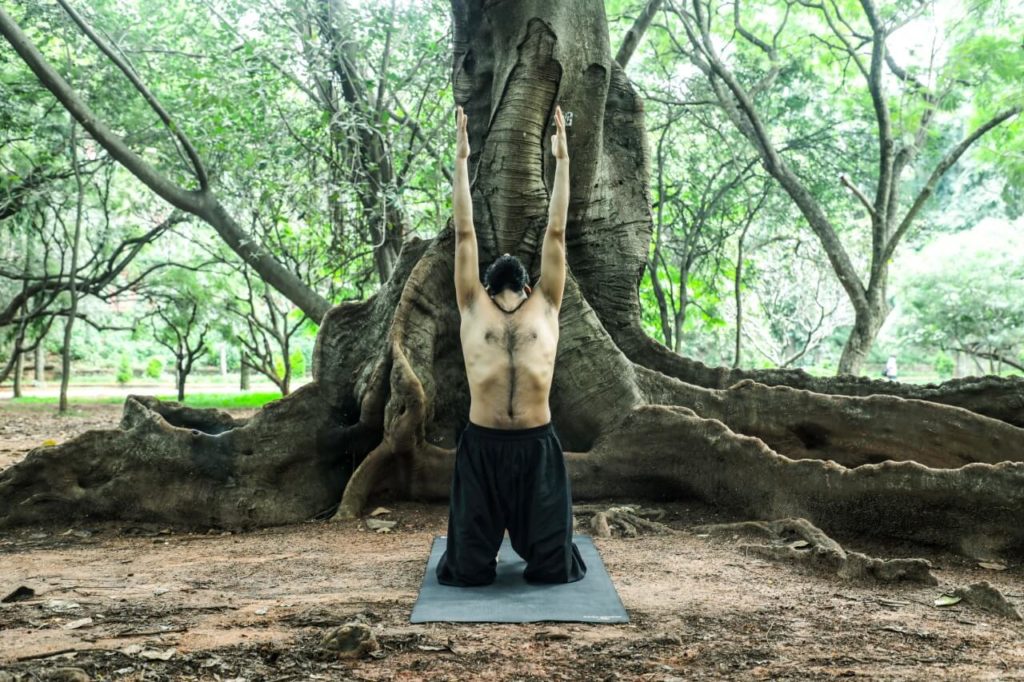
Formation of the posture
Begin with Samsthithi. Stretch your arms outward begin to bend your knees. Bend your upper body and place your arms on the floor to support your body as you lower your knees and place them on the floor. With your body weight supported by your lower legs and knees, keep your upper body perpendicular to the floor. Stretch your arms up to the sky with palms hovering shoulder distance from and facing each other. Your arms, spine, hips and thighs should be in one straight line. Repeat 3 sets of 30 seconds each
Statistics from recently conducted studies show that an increasing number of people (7 out of every 10) suffer from some form of mental health condition. Yoga which takes us on an inner journey imparts vital tools that can help us master our own selves. When we understand the importance of the mind, then we can begin the process of mastering it. Through yoga and other similar activities, anyone can learn the art of mindfulness. It is nothing but training your mind to focus just like meditation with attention on the breath, body and mind. Mindfulness can be learned through practice.



